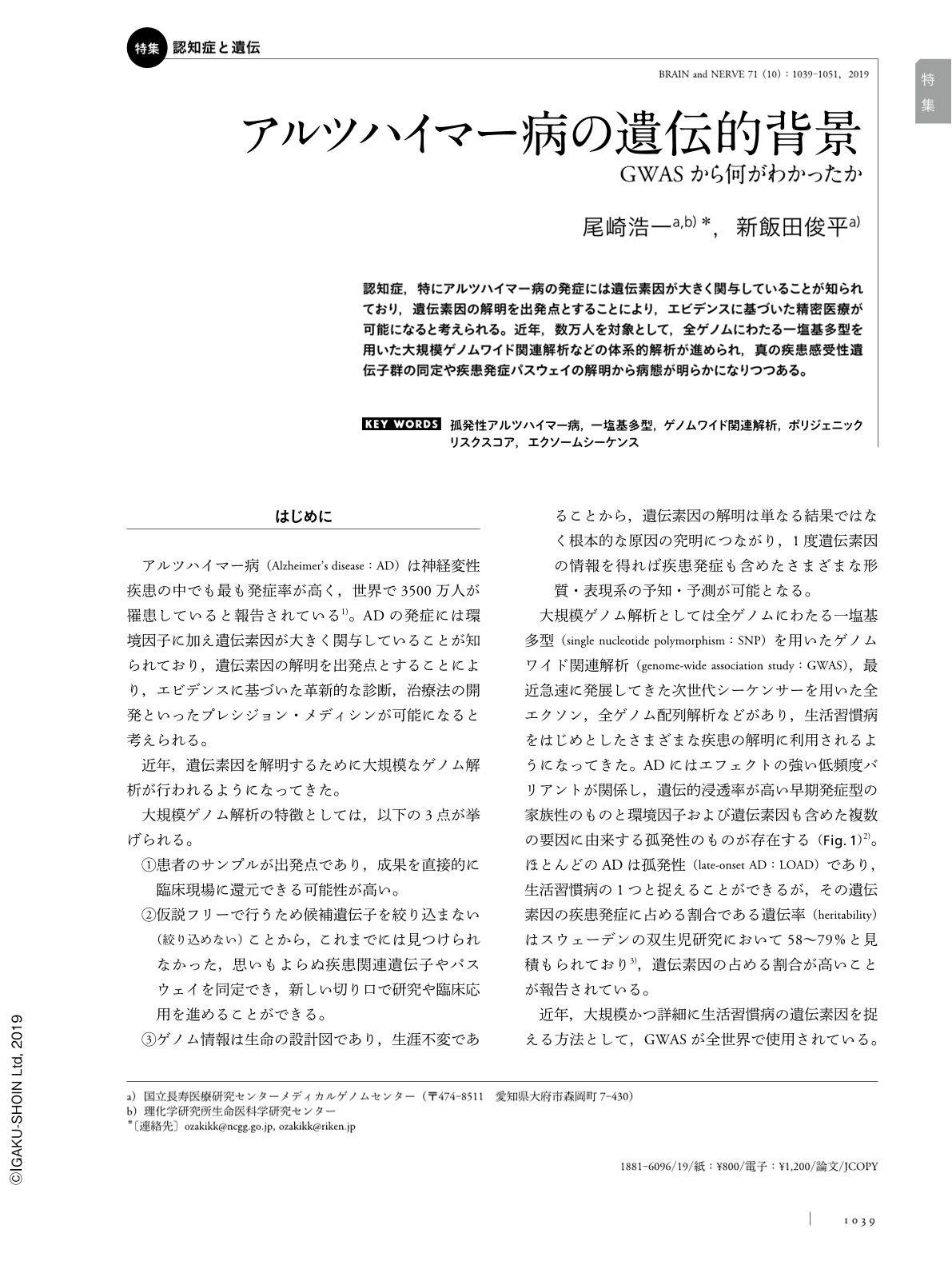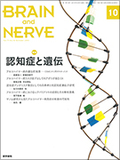Japanese
English
- 有料閲覧
- Abstract 文献概要
- 1ページ目 Look Inside
- 参考文献 Reference
認知症,特にアルツハイマー病の発症には遺伝素因が大きく関与していることが知られており,遺伝素因の解明を出発点とすることにより,エビデンスに基づいた精密医療が可能になると考えられる。近年,数万人を対象として,全ゲノムにわたる一塩基多型を用いた大規模ゲノムワイド関連解析などの体系的解析が進められ,真の疾患感受性遺伝子群の同定や疾患発症パスウェイの解明から病態が明らかになりつつある。
Abstract
Dementia is a leading cause of death in many countries. Late-onset Alzheimer's disease (LOAD) is the most common form of dementia, with approximately 35 million affected people. LOAD shows a high heritability (h2) of 58-79%. Clarifying the genetic architecture of LOAD could contribute to precision medicine. In recent years, large-scale genome-wide association studies (GWASs) and their meta-analyses with a large sample size have elucidated the disease-susceptible genes and disease-causing pathways. To date, meta-analyses of GWASs in the Caucasian population have successfully identified approximately 40 LOAD risk loci. The gene set and disease pathway analysis obtained from the results of GWASs suggested biological mechanisms involving brain immune function, lipid-related processes, tau binding proteins, and degradation of amyloid precursor proteins in the pathogenesis of LOAD. Furthermore, the exome sequencing analysis in Japanese individuals with LOAD also revealed a rare variant with a large effect of SHARPIN in LOAD susceptibility, and the variant protein possibly affects the immune response through aberrant cellular localization, which may result in attenuated NF-κB activity in the brain. These findings could provide biological and pharmaceutical approaches in precision medicine for LOAD.

Copyright © 2019, Igaku-Shoin Ltd. All rights reserved.


